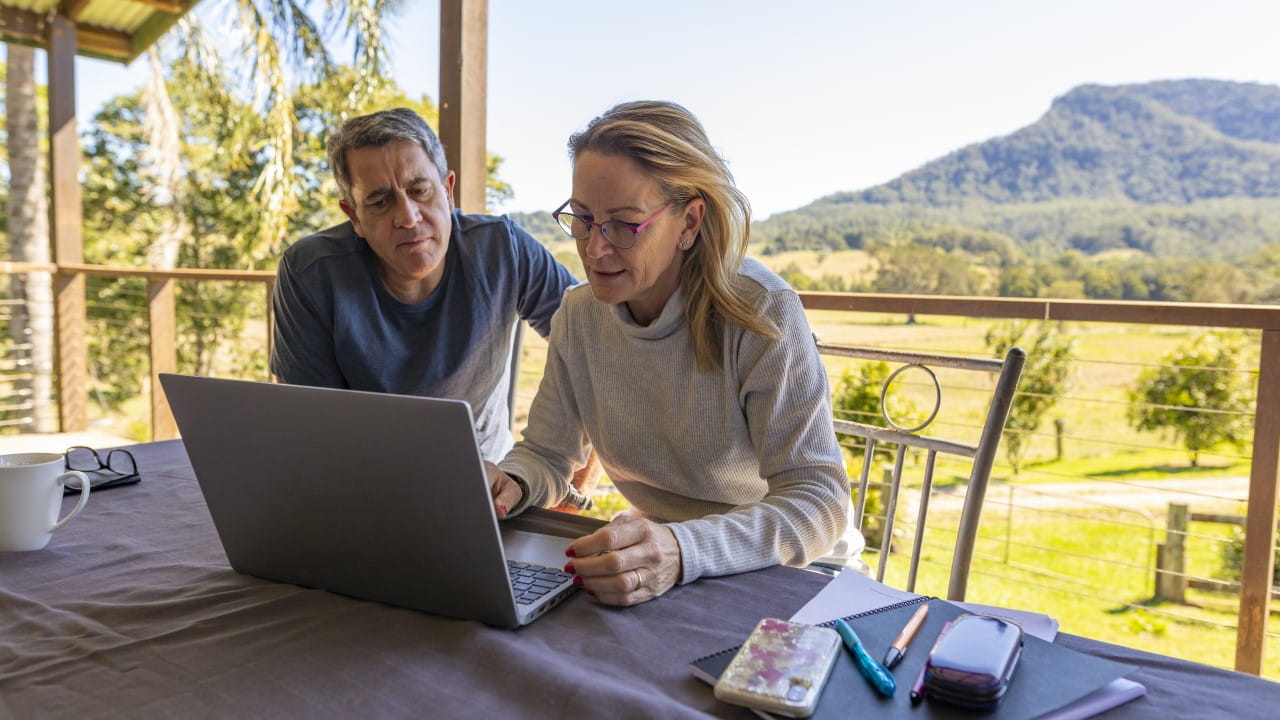Key points
- Don’t be surprised if you don’t remember anything your doctor has told you beyond the initial diagnosis so book a follow-up as soon as possible.
- Asking the right questions is especially important when you have to make decisions about tests, treatments and procedures.
- If you want the best shot at managing your condition, you need the right people around you. Think of them as your “trusted squad”—a group of people you can go to for their expertise, emotional support or a combination of both.
Finding out that you have a chronic condition can be a life-changing moment. And it’s a moment that more of us are experiencing, with almost one in two Australians currently living with one or more chronic conditions, such as arthritis, cancer, cardiovascular disease and diabetes.
As challenging as this time is, you don’t have to navigate your new diagnosis in the dark. Here’s what the experts want you to know, so that you can be informed, empowered and supported to make the best choices for your health and wellbeing.

Give yourself time for the information to sink in
Don’t be surprised if you don’t remember anything your doctor has told you beyond the initial diagnosis. It’s completely normal to feel overwhelmed when diagnosed with a serious or chronic condition, and to have trouble absorbing all the information in the moment.
The experience of having emotional responses—such as disbelief, fear and anger—can affect a person’s ability to process information, even if it’s explained several times.
This underscores the importance of building a relationship of trust and understanding that hearing something once might not be enough. That’s why booking a follow-up consultation is strongly recommended. Preparing a list of questions ahead of time can help ensure you get the answers you need, especially if emotions once again run high during the appointment.
Empower yourself to make informed decisions
Asking the right questions is especially important when you have to make decisions about tests, treatments and procedures.
It can be difficult to know what to ask in the moment, especially during appointments where a lot of information is being shared quickly. One helpful framework is Choosing Wisely Australia's five-question checklist, designed to support informed decision-making:
- Do I really need this test, treatment or procedure?
- What are the risks associated with it?
- Are there any other simpler or safer options to having that test, treatment or procedure?
- What will happen if I don't do anything?
- What are the costs associated with it?
Having a structured set of questions like this can give you the clarity and confidence to evaluate your options and make more balanced healthcare decisions.
If you have health insurance, Rebecca Harwood, CEO of Insurances at Australian Unity, adds: “It’s important to clarify which treatments will be hospital treatments and which are out of hospital. While extras cover pays benefits for things such as physiotherapy, optical and dental, generally health funds are not permitted to cover outpatient services.” These can include tests, procedures and consultations.
“If you need hospital treatment, ask your treating doctor if they participate in your health fund’s Gap Cover scheme and if they will undertake your treatment as part of this scheme. This will help limit your out-of-pocket costs,” says Rebecca.
If you decide to join health insurance or upgrade your cover after receiving a diagnosis, you might have to serve a 12-month waiting period before you can claim or are eligible for the higher benefits. But don’t be worried about declaring your health condition.
“Everyone pays the same price for health cover irrespective of their health status or how much they claim. This keeps private health insurance affordable for all,” explains Rebecca. “In fact, telling us about your situation gives us an opportunity to ensure you maximise the benefits of your cover with features such as coaching programs and in-home hospital services.”

Create a trusted squad
If you want the best shot at managing your condition, you need the right people around you. Think of them as your “trusted squad” – a group of people you can go to for their expertise, emotional support or a combination of both.
A strong support team should include a mix of medical professionals, allied health practitioners, and people in your personal life such as family and close friends. Your GP plays a central role in coordinating your care, and depending on your needs, you may also work with a nurse, pharmacist or a health coach.
For those managing conditions where lifestyle changes are important, a health coach can help turn intentions into actions. Health coaching has been shown to bridge the gap between knowing you need to make a change and actually achieving it in your daily life.
If you don’t feel supported or understood by your current care team, you have every right to seek a second opinion. The key is finding healthcare providers you feel comfortable with—people who communicate clearly, listen well, and whom you can build trust with over time.
As Rebecca says, it all comes back to you. “We want to empower you to be an active participant in your healthcare journey.”
Discovering you have been diagnosed with a chronic condition is life changing. While it can be a difficult situation, surrounding yourself with people you trust and arming yourself with questions and information can help you see things more clearly during this difficult time.
Disclaimer: Information provided in this article is of a general nature. Australian Unity accepts no responsibility for the accuracy of any of the opinions, advice, representations or information contained in this publication. Readers should rely on their own advice and enquiries in making decisions affecting their own health, wellbeing or interest. Interviewee names and titles were accurate at the time of writing.


